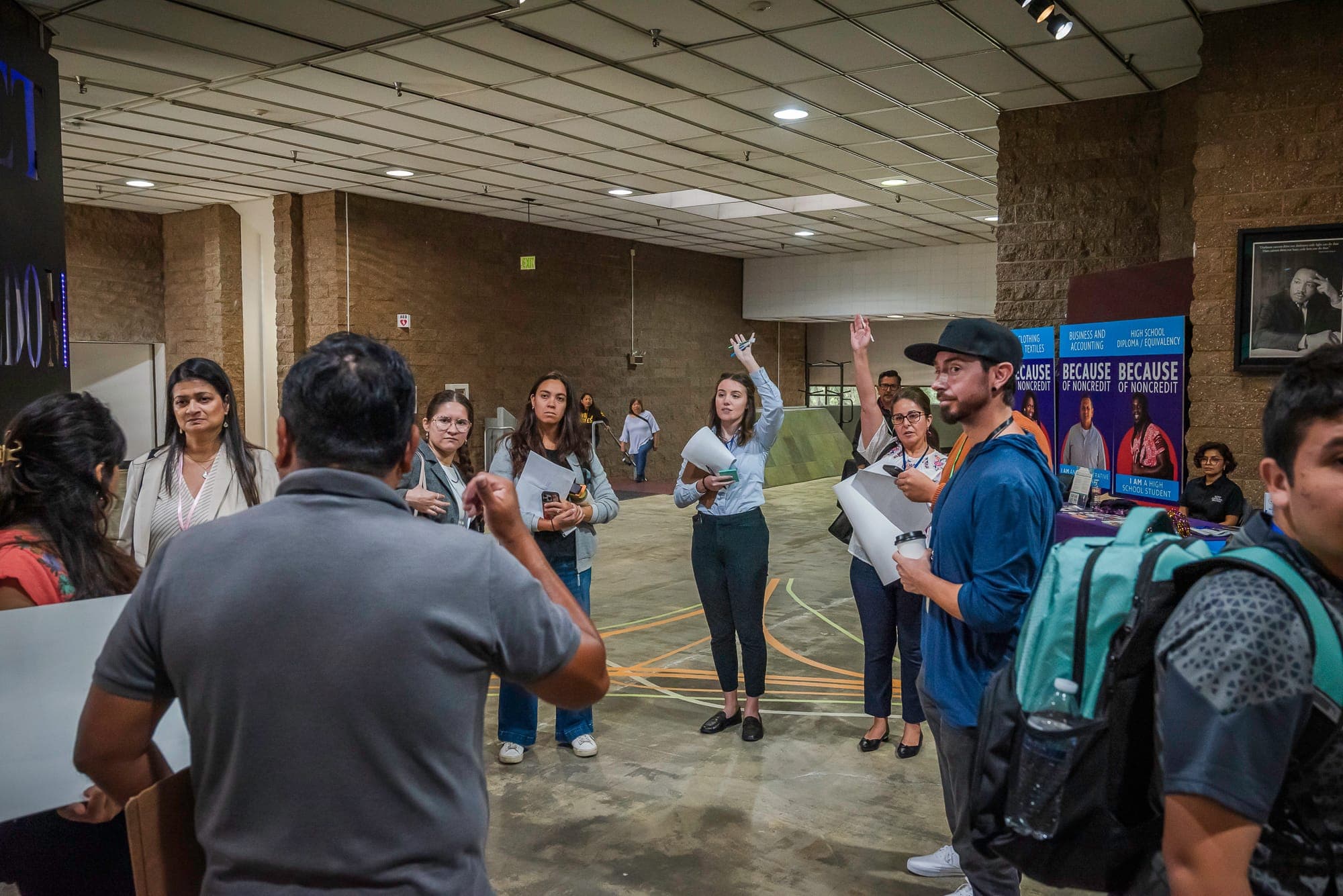
News
By Mary Eveleigh, May 10, 2017
Webinar next week: Making the Most of Main Street — Join the National Complete Streets Coalition Wednesday, May 17, 2017 from 1:00-2:00 PM EDT for our webinar “Making the Most of Main Street: Complete Streets & Walkable Communities.” Co-host America Walks and speakers from Langley, WA will join the Coalition to discuss how a Complete Streets approach can help communities revitalize downtowns. Participants will learn about developing and implementing Complete Streets, the intersection of public health and rural economic development, how to get community members involved, and finding funding.
New CDC physical activity recommendations —The Centers for Disease Control and Prevention have released new recommendations to promote physical activity by implementing a combination of transportation and land use interventions. The recommendations stem from the Community Preventive Services Task Force (CPSTF), an independent panel of 15 public health and medical experts. CPSTF’s new Community Guide recommends implementing changes to the built environment that provide opportunities for physical activity during free time and as a means of transportation. These interventions fall under transportation system interventions, specifically focused on pedestrian and bicycle infrastructure, as well as land use and environmental design strategies.
Complete Streets Consortium award announced — Building a connected network of streets that is safe for everyone, no matter how they travel, takes region-wide collaboration. Our newest technical assistance award is designed to help three agencies in Tennessee do just that. Smart Growth America and the National Complete Streets Coalition are proud to announce that a partnership of agencies in Chattanooga, Knoxville, and Nashville, TN is the winner of our first-ever Complete Streets Consortium technical assistance. The Chattanooga TPO, Knoxville Regional TPO, and Nashville Area MPO applied for and won the award collaboratively, and will together receive a set of three free technical assistance workshops.
Send us your Complete Streets policies — Has your community passed a new Complete Streets policy? The National Complete Streets Coalition is collecting city, county, regional, and state policies for documentation in our Policy Atlas and Inventory and our Best Complete Streets Policies reports. For inclusion in these resources, please send a PDF copy of your policy to Mary Eveleigh.
2017 National Walking Summit — America Walks and the Every Body Walk! Collaborative are excited to announce the 2017 National Walking Summit, “Vital and Vibrant Communities: The Power of Walkability.” The 2017 National Walking Summit will expand what is meant by the term “healthy” to include not only physical health, but also social, economic, and civic health. The exciting two and one-half-day event will be filled with seminars, break-out sessions, and Learning-From-Place Mobile Workshops that will bring together the walking community.
APBP Professional Development Seminar — Registration is open for APBP’s Professional Development Seminar, a biennial conference with in-depth sessions and a collaborative atmosphere. The theme for 2017 is Walk and Roll: Transformations in Transportation with tracks focusing on Building a Diverse Profession, Implementing Complete Streets Policies, and Partnerships. Attendees are invited to join a range of informative mobile tours exploring the host city of Memphis, TN.
Cultural Corridor Consortium grant opportunity — Through a generous grant from the Kresge Foundation, over the last two years Transportation for America (T4A) has worked alongside local partners in three rapidly changing, diverse communities around the country to explore how arts and culture and more creative forms of engaging the public can positively shape transportation investments. T4A is seeking to award $50,000 (each) to creative placemaking projects in three new cities for 2017-2018. Find out more at an informational webinar tomorrow, May 11 from 4:00-5:00 PM EDT.
Livable Transit Corridors: Methods, Metrics, and Strategies — A new report by TRB’s Transit Cooperative Research Program presents practical planning and implementation strategies to enhance livability in transit corridors. The Handbook provides a resource for planning practitioners, policy makers, and other stakeholders to measure, understand, and improve transit corridor livability. It also includes a set of tools and techniques that can help in building community support, identifying livability needs, and developing action-oriented strategies for improving transit corridor livability.
Podcast on Health and Transportation — ITE and the Chartered Institution of Highways & Transportation partnered on a podcast investigating how cities can support health and transportation. The episode features Lucy Saunders, Public Health Specialist, Transport & Public Realm with the Greater London Authority and Transport for London, and Dale Bracewell, Manager of Transportation Planning with the City of Vancouver, BC, Canada, speaking about implementing health and transportation initiatives in their respective cities.
Caruthersville, MO, recently adopted a Complete Streets ordinance, becoming the 32nd Complete Streets Policy in Missouri. The ordinance will open the door to opportunities for funding and building infrastructure projects that were not available before. “We want to be able to redo the sidewalks and streets, but like a lot of rural communities, we do not have a budget for that. If you want grants to help with redevelopment, you have to have something in place … it is important to your community,” said Dawn Jordan, Caruthersville Healthy Communities Coordinator.
The Lunenburg, MA Board of Selectmen voted last month to adopt a Complete Streets policy aimed at making roads easily navigable by people of all ages and abilities. The policy will be submitted to and rated by the Massachusetts Department of Transportation for a possible award of up to $50,000 in technical-assistance grant money. Selectman Paula Bertram said she is pleased with the Complete Streets policy, stating “We are committing, that to the maximum extent possible, we are going to be making Lunenburg streets Complete Streets and multimodal accessible.”
The Florida Department of Transportation (FDOT) has delivered on a major milestone of its Complete Streets Implementation Plan — issuance of a draft Design Manual to replace its current Plans Preparation Manual. In addition, the Department has prepared a Draft Complete Streets Handbook to accompany the new Design Manual. Highlighting the national significance of this FDOT project, last month the team leader of the project, DeWayne Carver, State Complete Streets Program Manager for FDOT, received a national award for this effort.
Dougherty County, GA commissioners are considering a new program that could help increase property values and improve community health. Albany-Dougherty Planning Director Paul Forgey discussed a Complete Streets program with the commission at its meeting last month. “It makes the community a place that people want to live and people want to move to, so it’s an amenity for the community that attracts businesses, that attracts new people,” Forgey said. He will next put together a policy for the county to evaluate and vote on at a later meeting.
Last month, interested citizens and officials from the Petersburg, VA community attended a Complete Streets workshop with Coalition Director Emiko Atherton and Ramey Kemp and Associates Director of Planning, Roger Henderson. Attendees learned about how to create more bikeable, walkable communities and gained tools and strategies to advance economic, health, and community vibrancy goals. Petersburg will next investigate steps to adopt a Complete Streets policy.
As of December 2016, 8 counties and 135 municipalities in New Jersey have adopted their own local Complete Streets policy. The Bicycle and Pedestrian Resource Center, part of the Alan M. Voorhees Transportation Center at Rutgers University, has developed a series of case studies intended to highlight some of these Complete Streets leaders in New Jersey. Somerville, NJ, Passaic County, NJ, and Cherry Hill, NJ are among those featured in recent case studies series.
Related News

© 2025 Smart Growth America. All rights reserved
Site By3Lane Marketing








